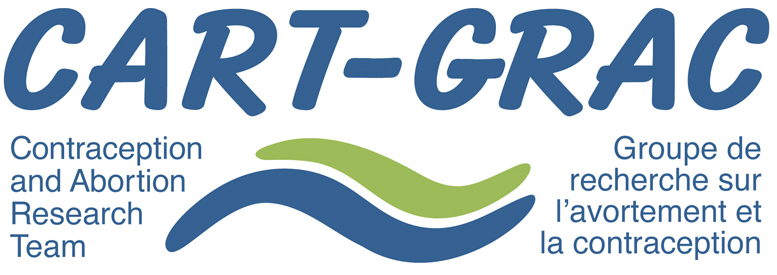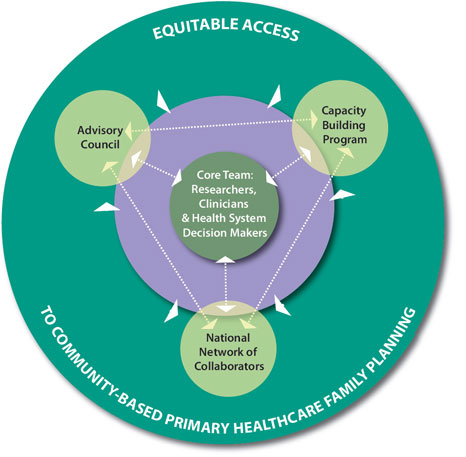Supporting women to plan and space their pregnancies provides a wide range of benefits to society, to children and to their families. In Canada, nearly a third of Canadian women have at least one abortion in their lifetime. Marginalized and vulnerable populations are over-represented among those with unintended pregnancies and particularly among those seeking abortion. Access to family planning is particularly challenging for youth; women living in northern, rural or remote locations; of Aboriginal heritage; living with substance use or mental illness; and of lower socioeconomic status.
The Contraception and Abortion Research Team-Groupe de recherche sur l’avortement et la contraception (CART-GRAC) is a national, interdisciplinary, cross-sectoral collaboration performing research to support health services and policies to ensure equitable access to high-quality family planning knowledge, methods and services for women and families throughout Canada.
Led by primary healthcare clinician scientists, the CART-GRAC network incorporates priority healthcare questions identified by key health policy leaders, health system decision makers, stakeholder community group representatives and primary healthcare professionals. These priority questions guide high quality research conducted by our interdisciplinary academics and researchers-in-training. We have a programmatic Canadian family planning research agenda to develop, compare and scale-up innovative models of care capable to address inequities in access to high quality family planning knowledge, services and methods.

OUR AIM is equitable access to family planning knowledge, services and methods, supporting all women and families to be able to plan and space their pregnancies. Concurrently, we build capacity for long term solutions through researcher-training, and develop approaches to measure meaningful national reproductive health indicators in Canada.
OUR GOAL is to undertake primary healthcare family planning research that will lead to improvements in equitable access to high quality family planning knowledge, services and methods, particularly among vulnerable women and families throughout Canada.



